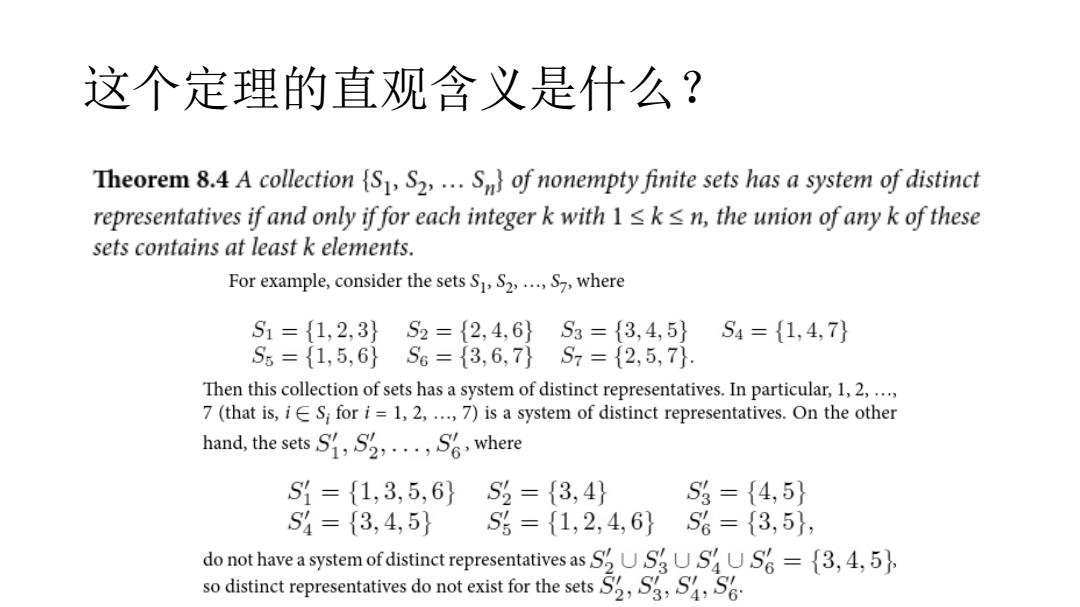正在加载图片...

这个定理的直观含义是什么? Theorem 8.4 A collection {S S2,...S of nonempty finite sets has a system of distinct representatives if and only if for each integer k with 1 s k s n,the union of any k of these sets contains at least k elements. For example,consider the sets S,S,...S,where S1={1,2,3}S2={2,4,6} S3={3,4,5} S4={1,4,7} S5={1,5,6} S6={3,6,7} S7={2,5,7} Then this collection of sets has a system of distinct representatives.In particular,1,2,.... 7(that is,i S;for i=1,2,...,7)is a system of distinct representatives.On the other hand,the setswhere S1={1,3,5,6}S%={3,4} S3={4,5} S4={3,4,5} Sg={1,2,4,6}S%={3,5}, do not have a system of distinct representatives as S2UUUS={3,4,5 so distinct representatives do not exist for the sets这个定理的直观含义是什么?